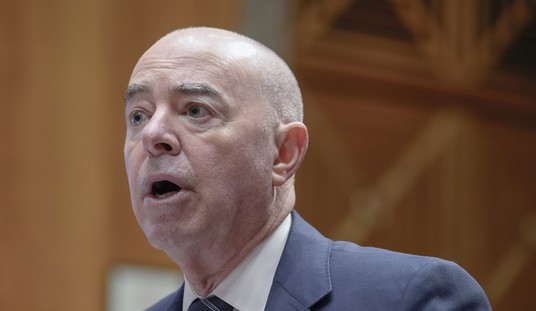Robert J.Cristiano believes that at least one financial tsunami “began long ago and very far out to sea” when public sector employees voted themselves wonderful compensation and benefits packages that now threaten to throttle the tax base. Or maybe it began more prosaically, the way an unpayable credit card debt starts, with Good Times. And it comes a-cropper when the cash flow slims down and the cardholder finds he can’t pay for all the dreams he purchased on installment.
Cristiano is referring to the Trillion Dollar gap between “between the $3.35 trillion in pension, health care and other retirement benefits states have promised their current and retired workers as of fiscal year 2008 and the $2.35 trillion they have on hand to pay for them … aided in part by campaign contributions from the unions to elect Democratic Party candidates and generous pay packages and retirement plans passed by those same politicians in return.” It is a Gap being closed by States which have no arithmetical alternative but to turn on the very people who were promised these benefits. With every state except Montana and South Dakota running projected budget deficits, governments like once city in California are simply hacking away furiously at their financial commitments.
One Orange County city has already taken bold steps to correct its $10 million deficit. It may be a model for other cities and states across the country. Internally, it has decided it will not replace any city worker that dies, retires, moves or quits. The city will simply out source the employment to an outside service company and eliminate healthcare requirements and unsustainable pensions. Building inspectors will be out sourced as will city plan checkers, librarians and meter maids. Only essential services like top executives and cops will remain on the city payroll. The city staff will eventually decrease from 220 to approximately 35 personnel.
It is perhaps telling that government at its minimum consists of “top executives” and cops. What Cristiano calls a “deconstruction” — the bankruptcy of governments — will affect millions of families. But preventing a “deconstruction” will be painful too. Greece, which epitomizes state bankruptcy, is already riven by tension caused by cutbacks aimed at keeping that country in a currency zone it cannot afford to be part of. A German economist warned that by avoiding the rational in pursuit of the politically irrational, Athens has only made things worse.
On a Labor Day dominated by bad economic news, the pundits were out in force selling solutions. Paul Krugman argued, for the nth time, that government is not stimulating the economy enough. Michael Hudson argues that a huge transfer of resources away from physically productive activities to cerebral services, including the dubious services of Wall Street has resulted in a vast bonfire of real money: “the bailout has left little for Social Security, and nothing to bail out the insolvent states and cities, or for more stimuli to pull the national economy out of depression.”
But if stimuli were all that counted, why should it matter who got the money or how it is spent? Is Krugman right to argue it would even be okay to spend money to fight a war? “From an economic point of view World War II was, above all, a burst of deficit-financed government spending, on a scale that would never have been approved otherwise. Over the course of the war the federal government borrowed an amount equal to roughly twice the value of G.D.P. in 1940 — the equivalent of roughly $30 trillion today.” Morality aside that money went into expanding factory capacity, providing millions with job training, developing high technology and in general creating the physical sinews which drove postwar prosperity.
It apparently matters who gets the money. Harold Meyerson of the Washington Post argues that most of this deficit is being captured by corporate profits. The reason for the “jobless recovery” in his view is that the fat cats have upped productivity and hired fewer workers. The solution to the jobs crisis as he sees it is the unionization of the private sector so that like the public sector it can garner its share of the loot. From this it is apparent that deficit spending is regarded as only one half the policy prescription. The other half is redistribution.
When President Obama accused the Republicans of talking about him as if “he were a dog” it is based on the underlying narrative of a deficit-driven recovery which is failing because of Koch-funded Tea Party sabotage. Both in origin and solution the tsunami that Cristiano talks about is driven by the tectonics of class warfare. The Tea Party defines the split as being between government and the private sector. By contrast the Left defines the bifurcation as between rich and poor.
In the coming years there will be two struggles. The first is for control of purse, the second for control of the objects of expenditure. The two are related. Who controls the purse determines whether the economy prospers or not. But after that the fruits of the growth will still be a subject of contention.










Join the conversation as a VIP Member